Meetings and Events
 Detection of gravitational waves requires the operation of very sophisticated detectors producing large amounts of data. The sensitivity of the gravitational-wave detectors to astrophysical signals is limited by the noise associated with the instruments themselves and their environment. Invaluable astrophysical information is buried in data sets that may be too large or complex to be analyzed with traditional data-processing techniques. This workshop will focus on the development of techniques for a more efficient handling of gravitational-wave data sets, reduction of detector noise, identification of astrophysical signals and increase in detection confidence. It will bring together astrophysicists, mathematicians and statisticians working on the state-of-the-art data analysis.
Detection of gravitational waves requires the operation of very sophisticated detectors producing large amounts of data. The sensitivity of the gravitational-wave detectors to astrophysical signals is limited by the noise associated with the instruments themselves and their environment. Invaluable astrophysical information is buried in data sets that may be too large or complex to be analyzed with traditional data-processing techniques. This workshop will focus on the development of techniques for a more efficient handling of gravitational-wave data sets, reduction of detector noise, identification of astrophysical signals and increase in detection confidence. It will bring together astrophysicists, mathematicians and statisticians working on the state-of-the-art data analysis.
Detailed information can be found here.
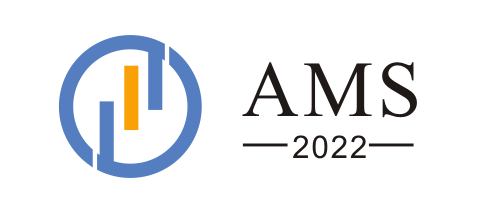 2022 Asia-Pacific Conference on Applied Mathematics and Statistics.
2022 Asia-Pacific Conference on Applied Mathematics and Statistics.
Detailed information can be found here.
Building on the success of the previous series of similar events, this ESO/ESA workshop aims to facilitate the exchange of current developments and applications of AI enabled technologies in science operations for space- and ground-based astronomical facilities. We plan to examine the entire scientific operations workflow starting from proposal and observation preparation, scheduling and execution of observing programs, data analysis and archiving.
Detailed information can be found here.
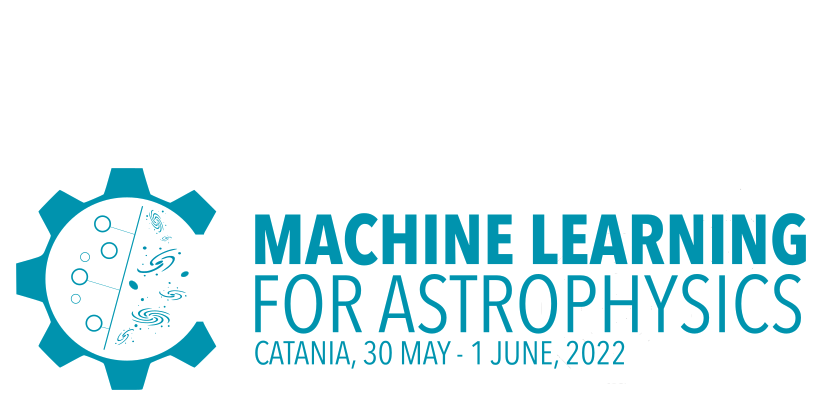
Bring together researchers actively involved in the fields of machine learning applications to astrophysics use cases is the aim of the International Conference on Machine Learning for Astrophysics - ML4Astro.
In the view of the forthcoming Big Data era for the astronomy community, the conference focuses on challenges coming from the application of ML/DL methods to open problems in astrophysics: novel AI techniques will be presented and joint discussions on their use with observational data will be fostered.
Detailed information can be found here.
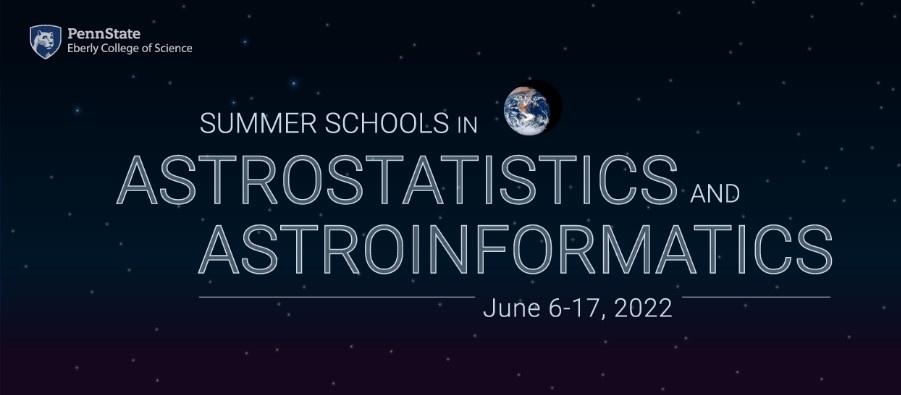 For the 17th year, Penn State’s Center for Astrostatistics is offering its week-long virtual Summer School in statistical methodology for astronomy. The School provides an intensive program in statistical inference covering topics such as principles of probability and inference, regression and model selection, bootstrap resampling, multivariate clustering and classification, Bayesian data analysis, Markov chain Monte Carlo (MCMC), time series analysis, spatial statistics, deep learning neural networks, and machine learning with random forest.
For the 17th year, Penn State’s Center for Astrostatistics is offering its week-long virtual Summer School in statistical methodology for astronomy. The School provides an intensive program in statistical inference covering topics such as principles of probability and inference, regression and model selection, bootstrap resampling, multivariate clustering and classification, Bayesian data analysis, Markov chain Monte Carlo (MCMC), time series analysis, spatial statistics, deep learning neural networks, and machine learning with random forest.
Detailed information can be found here.
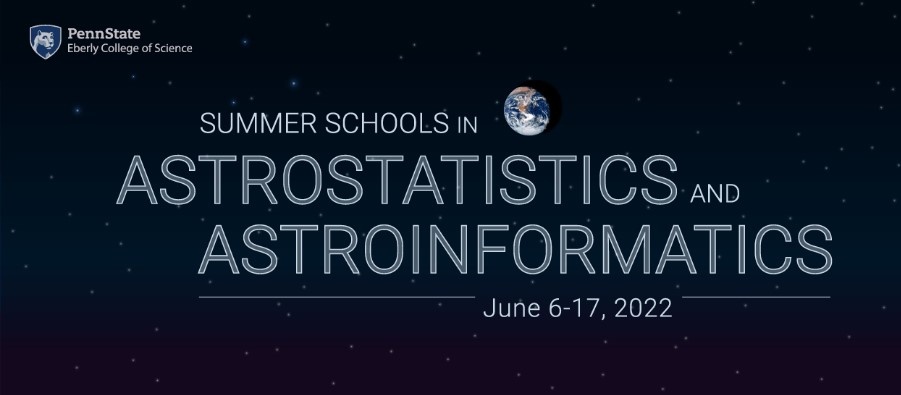 Penn State’s Center for Astrostatistics is offering its 2nd Summer School in Astroinformatics. The School offers advanced lessons on applying data-driven models to address challenges of modern astronomy research, such as incorporating machine learning, mining large astronomical surveys, harnessing parallel computing architectures, Bayesian computation, and integrating these with domain-specific knowledge to achieve more than can be done with either traditional methods or machine learning individually.
Penn State’s Center for Astrostatistics is offering its 2nd Summer School in Astroinformatics. The School offers advanced lessons on applying data-driven models to address challenges of modern astronomy research, such as incorporating machine learning, mining large astronomical surveys, harnessing parallel computing architectures, Bayesian computation, and integrating these with domain-specific knowledge to achieve more than can be done with either traditional methods or machine learning individually.
Detailed information can be found here.
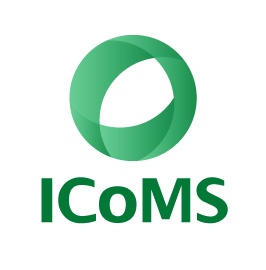 The 5th International Conference on Mathematics and Statistics, ICoMS 2022 is a major annual international conference to bring together researchers, engineers, developers and practitioners from academia and industry working in all interdisciplinary areas of Mathematics and Statistics.
The 5th International Conference on Mathematics and Statistics, ICoMS 2022 is a major annual international conference to bring together researchers, engineers, developers and practitioners from academia and industry working in all interdisciplinary areas of Mathematics and Statistics.
Detailed information can be found here.
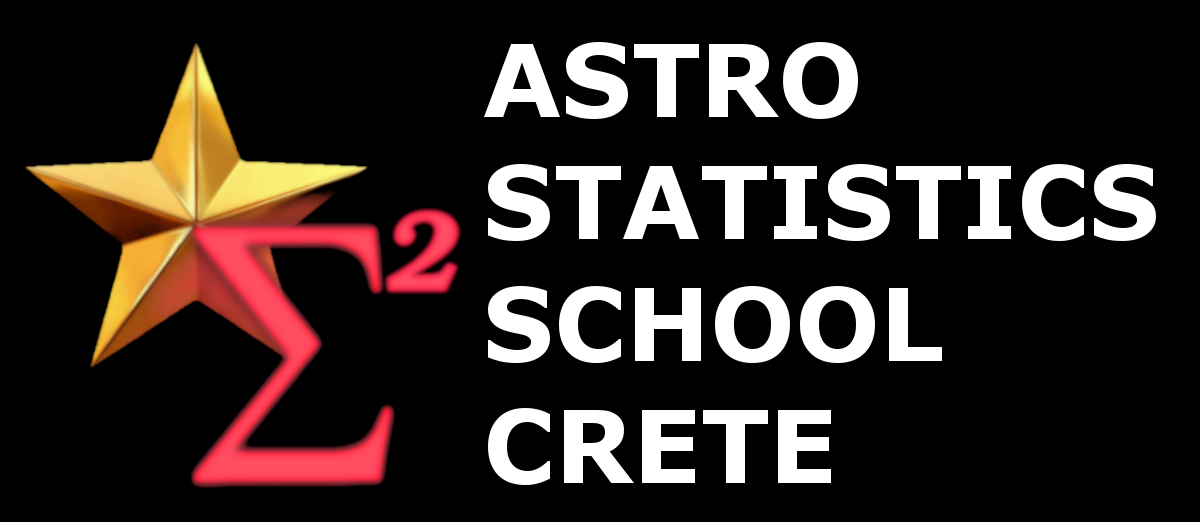 The goal of the Summer School for Astrostatistics is to guide advanced undergraduates, masters and graduate students, and early postdocs in the use of the most common statistical tools for the analysis of a wide variety of data. Each session includes an introductory class followed by a workshop (hands-on analysis of astronomical data), and poses particular emphasis on the development of coding abilities which will serve as a quick reference for everyday work.
The goal of the Summer School for Astrostatistics is to guide advanced undergraduates, masters and graduate students, and early postdocs in the use of the most common statistical tools for the analysis of a wide variety of data. Each session includes an introductory class followed by a workshop (hands-on analysis of astronomical data), and poses particular emphasis on the development of coding abilities which will serve as a quick reference for everyday work.
Detailed information can be found here.
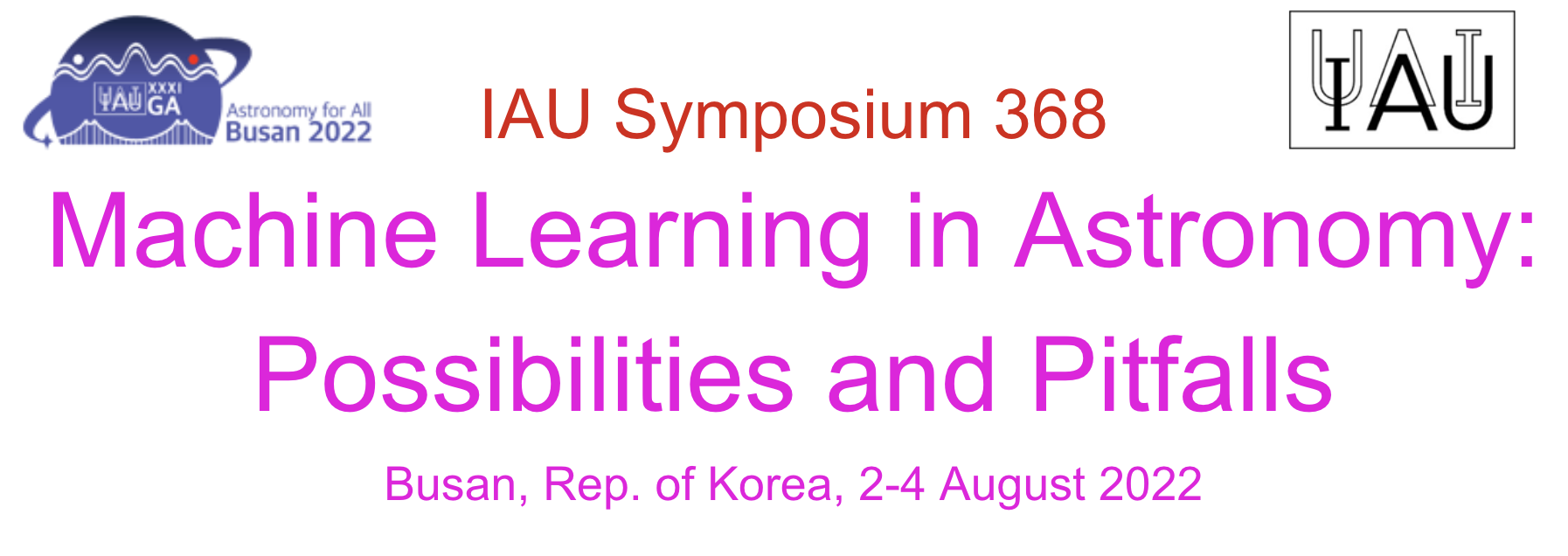 This symposium is under the broad umbrella of astroinformatics and astrostatistics but with an emphasis on the dissemination and demystification of deep learning techniques. We hope to encourage fusion of large datasets to enable exploration of combined parameter spaces that have so far remained unexplored. Using such diverse types as images, time series, spectra, and astrophysical simulations, one of our aims is to establish a list of reproducible "best-practices" solutions for astronomy data. The conference is part of the IAU Symposium Series.
This symposium is under the broad umbrella of astroinformatics and astrostatistics but with an emphasis on the dissemination and demystification of deep learning techniques. We hope to encourage fusion of large datasets to enable exploration of combined parameter spaces that have so far remained unexplored. Using such diverse types as images, time series, spectra, and astrophysical simulations, one of our aims is to establish a list of reproducible "best-practices" solutions for astronomy data. The conference is part of the IAU Symposium Series.
Detailed information can be found here.
 The school will provide a state-of-the-art picture of the astrostatistical data analysis techniques in the field of exoplanet research. It will cover various modern techniques that are currently used to detect and characterize extrasolar planets, including the spectroscopic radial velocity method, the photometric transit method, the astrometric orbit detection method. The astrometric method will become particularly relevant with the upcoming data releases of the Gaia space mission. The school will introduce the students to the relevant astrostatistical background given the particular noise properties of astrophysical datasets, as well as give them hands-on experience with real and synthetic datasets. Participants will learn the limitations of each method and the biases it introduces in the derived sample of exoplanets. The students will have the opportunity to discuss all of these topics with world experts in the field.
The school will provide a state-of-the-art picture of the astrostatistical data analysis techniques in the field of exoplanet research. It will cover various modern techniques that are currently used to detect and characterize extrasolar planets, including the spectroscopic radial velocity method, the photometric transit method, the astrometric orbit detection method. The astrometric method will become particularly relevant with the upcoming data releases of the Gaia space mission. The school will introduce the students to the relevant astrostatistical background given the particular noise properties of astrophysical datasets, as well as give them hands-on experience with real and synthetic datasets. Participants will learn the limitations of each method and the biases it introduces in the derived sample of exoplanets. The students will have the opportunity to discuss all of these topics with world experts in the field.
Detailed information can be found here.
